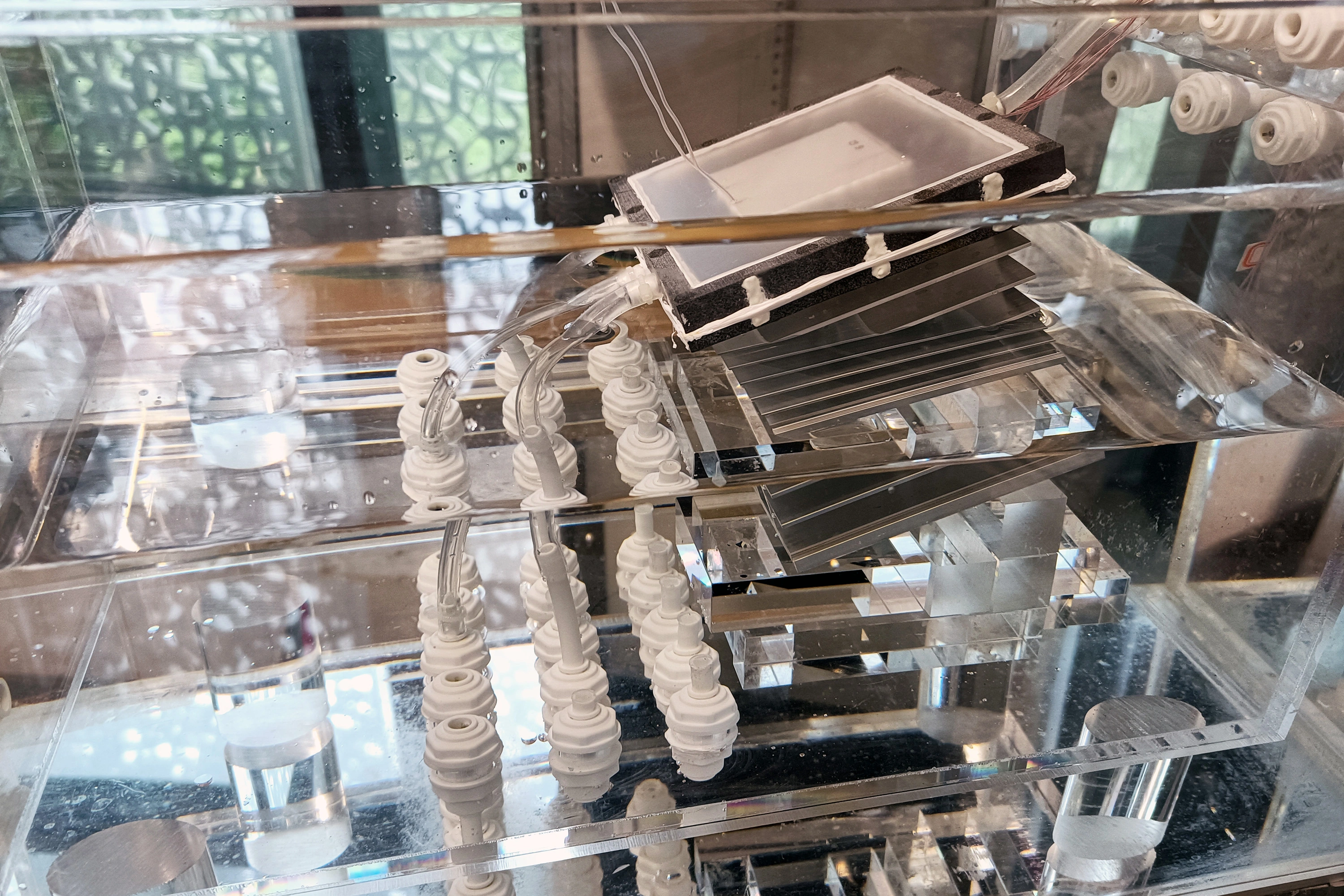Engineers at MIT and in China are aiming to turn seawater into drinking water with a completely passive device that is inspired by the ocean, and powered by the sun.
In a paper appearing today in the journal Joule, the team outlines the design for a new solar desalination system that takes in saltwater and heats it with natural sunlight.
The researchers estimate that if the system is scaled up to the size of a small suitcase, it could produce about 4 to 6 liters of drinking water per hour and last several years before requiring replacement parts. At this scale and performance, the system could produce drinking water at a rate and price that is cheaper than tap water.



This is not a chemical desalination. It’s a classic solar distiller. The output is distilled water. You actually want to cut it with a bit of seawater, because drinking distilled water pulls salts and minerals out of you, and then you die.
Drinking distilled water is actually not that dangerous, so long as you get salts some other way (food!). In order for distilled water to cause runaway deplasmolytic processes, you’d need to spend a lot of time only drinking that, afair from high school bio.
I mean you die if you only drink distilled water and never consume anything else, but the same is still true of mineral water
I was unclear - that’s exactly what I meant. I was thinking of a suitcase-sized still being used in an emergency or survival scenario, for a time anything other than “very short term.”